In Conversation: Oliver Chris
Cineplex is bringing more National Theatre to Canadian audiences, and actor Oliver Chris couldn’t be more excited. While those of us this side of the pond may know Chris best from his roles in medical sitcom Green Wing and the original UK Office, he’s also had a distinguished career on the stage, playing the biggest theatres in the UK. For Chris, NT Live and Cineplex’s Stage Series are both contemporary and retrospective, showcasing him in starring roles from both this past summer and eight years ago.
October 17 welcomes Bridge Theatre and National Theatre’s recently-closed celebratory re-imagining of A Midsummer Night’s Dream—starring Chris as Oberon/Theseus and Game of Thrones’ darling Gwendoline Christie as Titania/Hippolyta—with subsequent shows Oct. 20 and 23. And, in a reprise screening, the original 2011 production of Richard Bean’s One Man, Two Guvnors (an adaptation of Italian playwright Carlo Goldoni’s 1743 Commedia comedy Servant of Two Masters), hits Cineplex theatres Oct. 19 (subsequent screenings Oct. 24, Nov. 2, 14, and 17). Starring James Corden and Chris in the leading roles, One Man, Two Guvnors enjoyed unparalleled success in London’s West End before travelling to Broadway.
Below, Chris reminisces about one of the best performing nights of his life—fortuitously captured on camera—and ponders the magic of being in conversation with an audience and celebrating love in all its forms.
On filming One Man, Two Guvnors, and the greatest night
[Cineplex is showing the] original 2011 National Theatre production of One Man, Two Guvnors, starring James Corden, and me, and Jemima Rooper, and a whole cast of other amazing actors. It was broadcast to, I can’t remember how many hundreds of thousands of people live—but this is the very same capturing of one of the greatest nights in my life.
Oliver Chris in One Man, Two Guvnors. Photo by Johan Persson.
It was quite early on in my theatrical career, and it was quite early on in the run of the production. We were only a couple of months into the show. We did 425 performances over a couple of years, and I feel like this performance happened roughly 30 shows in. So it was super early, and we all look very, very, very, very sparky.
That night we had a full audience in [National Theatre’s] Lyttleton Theatre, but they also erected a screen. It was in the summer and they erected a screen at the front of the theatre, where there’s a courtyard on the riverfront. They had another 1500 people watching the broadcast live in front of the theatre.
It was my first ever NT Live. I’ve done like four now, so I’m like an old timer on that. Back then I was fresh faced and excitable. I remember I was so nervous. I just wanted to give the best performance, the most clean, precise performance I’d ever given. Then it was amazing. It was the most extraordinary experience. At the very end, we did our curtain calls in the theatre, then the whole cast ran outside, up the steps, through the foyer, out of the theatre, onto the river, and we all took a bow in front of all of the people watching outside.
To use a technical term, they went ape shit. It was amazing. People loved the show and it’s always just so amazing as an actor when you’re in something that people really, really love.
Theatre is normally stuff that happens in a room, in one room and you’re with the audience from start to finish. Never, when you’re an actor, do you leave the theatre out the front way and then find a whole other 2000 people who’ve just had the same experience next door. It just doesn’t happen. I was completely euphoric for weeks afterward.
On National Theatre Live
What is so amazing about NT Live is that it captures a theatrical performance in the most incredible way. It’s like you’re in the theatre, only you’ve got the most privileged seat in the house. Theatre is ephemeral, it disappears after it’s gone. This just captures it; it captures the genie in the bottle. The thought that that night—that incredible night [of One Man, Two Guvnors], which I have waxed lyrical about—has been captured forever and buzzes around like this little electric memory but made flesh. I find that quite mind blowing.
On watching performances back–or not
I will never watch myself [in NT Live.] Well, the truth is I did actually watch a tiny, tiny bit of it and as soon as I watched myself walk on stage I couldn’t watch any more.

Oliver Chris and Jemima Rooper in One Man, Two Guvnors. Photo by Johan Persson.
I’ve laughed about that quite a lot. I feel like it’s because [One Man, Two Guvnors] was such a part of me. The NT Live was such a part of me, but also that whole play and the journey and the production was such a big part of me. It was such a whirlwind for everybody else and the people that watched it, that I think for me, I want to keep the memory of it on the inside. I’ve got a very privileged position, that my memories are from the inside out and I’ll let the rest of the world enjoy it from the outside in. I’ll just keep all of my experiences, I think.
On the difference between acting for the screen and acting for the stage
I do occasionally [watch myself on TV], but I don’t make a point of it.
At their root acting for TV and acting for the theatre are the same. You can argue that the art is the same, but the craft is so different. I feel like you can learn more about screen acting by just watching yourself back. Theatre is an ephemeral thing. A theatre performance exists in conversation with an audience in a way that the screen acting doesn’t.
I feel like honing your skills as a theatre actor is more about understanding what it is to be telling a story in front of an audience. It’s like quantum physics. You can’t watch it because then you’ll alter it. Just having watched it, you’ll alter it.
It’s just my instinct that there is less learning to be done from watching yourself in a play. Nothing teaches you like performing the same show 10 times in a row in front of 10,000 different people. You learn an awful lot doing that. That’s all about you and your relationship with the play and the audience and what you’re doing.

Oliver Chris and Gwendoline Christie in A Midsummer Night’s Dream. Photo by Manuel Harlan.
On the relationship between theatre audiences and film audiences
It’s a scientific fact that people laugh more when other people are laughing around them. What NT Live does so brilliantly is it captures the whole theatrical production, which includes the atmosphere in the room.
In the NT Live version [of A Midsummer Night’s Dream] you will see audience members watching the play. With One Man, Two Guvnors I don’t think you do, but you’re very aware of the audience in the theatre just enjoying themselves. I think that drags the cinema audience through the screen into the theatre, eight years ago, in 2011. It does some incredible back-to-the-future type of thing, where it pulls you in. And if you didn’t have the audience there, I don’t think it would pull you into the screen with it. I think you would be watching it from a distance.
By capturing the audience’s reaction, you become one of the audience members as well. It’s a bit of magic actually. The NT Live stuff like that: it’s a little bit of magic. It’s quite an extraordinary thing.
On the Midsummer party, onstage and off
A Midsummer Night’s Dream is a play about love and magic and joy and celebration. I think the things that [director] Nicholas Hytner does is just so amazing. The guy’s just a genius, frankly. He’s got the play to build and build and build in its sense of celebration and craziness. It builds to the play within the play, which is just a kind of comic hysteria.
Then it all kind of calms down and becomes very, very magical. Shakespeare’s plays always ended with a song, and our songs were “Love On Top” by Beyoncé and “Bonkers” by Dizzee Rascal. Then suddenly there are purple petals showering down from the ceiling and UV lights everywhere. Then these two giant moons get bounced in. Moons that are like two, three meters in diameter bouncing around the audience. There’s like 450 audience members dancing around in the castle, dancing around in the middle of this pit for Beyoncé. Moons that go everywhere and lights are everywhere and the play’s effectively over, but everyone’s having a big party and it’s just super-duper awesome.

Cast of A Midsummer Night’s Dream. Photo by Manuel Harlan.
The way that the play worked was that it’s a pit in the middle [of the theatre]. The stage is with 400 audience members sort of standing around and walking around. Then the stage comes out of the middle so that the audience is all around. Then there are another 750 people sitting all the way around, 360 degrees all the way around on three different levels looking into this pit.
Because of the way it was at that theatre. when you’re in the middle everyone’s really close. If you buy a cheap ticket in a big theatre and you’re sat right in the back, you’re bloody miles away. You can’t see anything, but when you do it in the round like this on three levels, even the worst seat in the house gets a really close view, which is so brilliant. So what you get is that when you’re sitting around the outside, instead of being part of the party, you get to see the magic of all of these people dancing and moving around and holding hands and singing in circles. You get to sort of witness the spectacle.
Even if they shoot [Midsummer] from the seated audience, you’ll just get to see the party unfold like going to the circus, which is always just as beautiful as dancing in amongst it yourself.
Listen. I don’t know, it’s film, but if people in the cinema want to get up and start dancing around and kissing each other, as far as I’m concerned that’s awesome.
On gender-swapping
It’s really funny because it’s actually unbelievably simple, but it’s really confusing to explain. I play Oberon. In the original play, Oberon has Puck as his sidekick. Puck drugs Titania and Titania falls in love with a donkey. Then Oberon steals [Titania’s ward]. Then he wakes Titania up and then they fall in love again for, frankly, inexplicable reasons. She basically forgives him for date raping her and making her have sex with a donkey. I mean, standard, I’d definitely forgive someone.

Oliver Chris and Gwendoline Christie in A Midsummer Night’s Dream. Photo by Manuel Harlan.
In this version, Titania has Puck as a sidekick. She drugs Oberon. Oberon falls in love with the donkey. Titania takes Oberon’s boy, wakes up Oberon, and says, “See, you’ve been horrible. I’ve reaped my revenge because you’ve been being horrible to me,” and Oberon apologizes for being horrible and learns his lesson and that he shouldn’t be such a proud, mean, selfish man.
Then they fall in love again and then the whole thing becomes an allegory for Theseus and Hippolyta. Theseus is this kind of Handmaid’s Tale-style repressive dictator. He forces young women to marry boys that their fathers insist they marry. But through the dream where Theseus becomes Oberon and learns his lesson about sexual freedom, he then wakes up and through the magic of Hippolyta realizes that actually he should be a much nicer person, and allow people to fall in love with whoever they want; be they man, be they woman, be they gender-neutral, be they donkey, be they fairy, be they whatever.
On celebrating love
I think what this production of A Midsummer Night’s Dream does is celebrate love in all its forms. It celebrates love. It celebrates tolerance and it celebrates joy in all its forms. There’s a lot of boys kissing boys and girls kissing girls and boys kissing boys who were dressed like donkeys and all kinds of stuff going on.

Gwendoline Christie and Oliver Chris in A Midsummer Night’s Dream. Photo by Manuel Harlan.
The thing is, there was a very tiny—like for one day—there was a tiny wrinkle of millennial woke disapproval [at the thought] that we should be allowed to laugh at girls kissing girls or boys kissing boys. Someone mentioned it, but actually, it didn’t last, and it didn’t catch because one of the things that I think his production does so beautifully is that it celebrates gender and change. It celebrates mixed gender, pan gender, loving, and love. It celebrates love for the sake of love. Not only that, it makes joy and it makes laughter out of celebrating same sex couples, or mismatched couples, or correctly matched couples who happen to be the same sex, or whatever it might be.
It celebrates all of those things and it allows you to laugh at and with them in a way that is almost post-woke. It’s celebratory: it’s like we’ve got through the serious-minded bit and now we can all just have fun together. We need to be careful. We need to be respectful, but we can celebrate joyously, and we can all have fun.
[Falling in love with a donkey] was super awesome. The donkey in question was played by Hammed Animashaun, who is frankly the most extraordinary actor and is going to be a massive star. This play is so magical and brilliant that it doesn’t matter if it’s a woman falling in love with a donkey or a man falling in love with a donkey. In this case, it happened to be a man falling in love with a donkey and it was me. It’s easy to commit to because love does crazy things to us, and it doesn’t matter what a person looks like or who they are. That’s the story and that’s where the joy is. You just commit to that, and it becomes a beautiful thing. I feel very privileged to be one of the very few men to have fallen in love with a donkey.I feel like as a middle aged, cisgender white man, I have nothing to add to this. My voice in this organization is particularly ill-suited; but for me, I was very proud that [Midsummer] celebrates in a joyous way that I’d not seen before. Just love: no matter who you are, or where you are, or what shape you are, or what you’re made of.
A Midsummer Night’s Dream plays in select Cineplex theatres Oct. 17, 20, and 23. Information and tickets available here.
One Man, Two Guvnors plays in select Cineplex theatres Oct. 19 and 24, and Nov. 2, 14, and 17. Information and tickets available here.

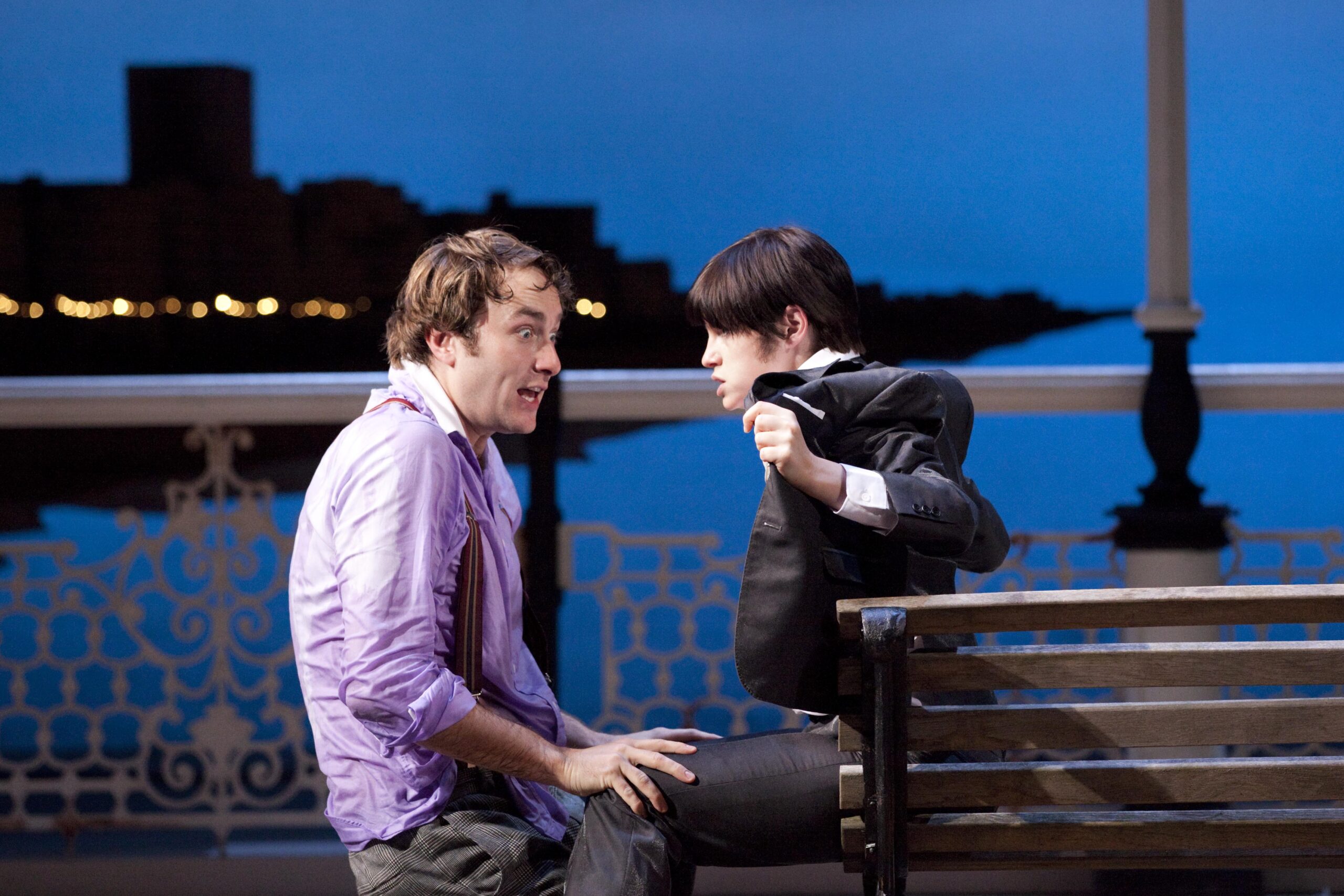








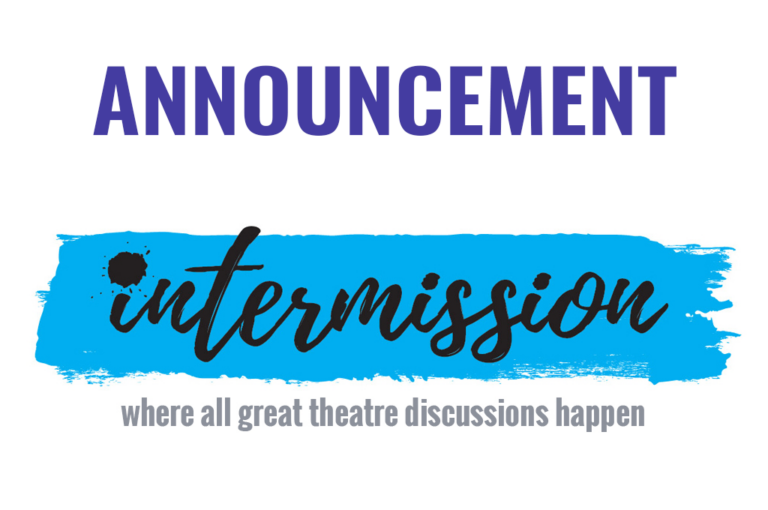

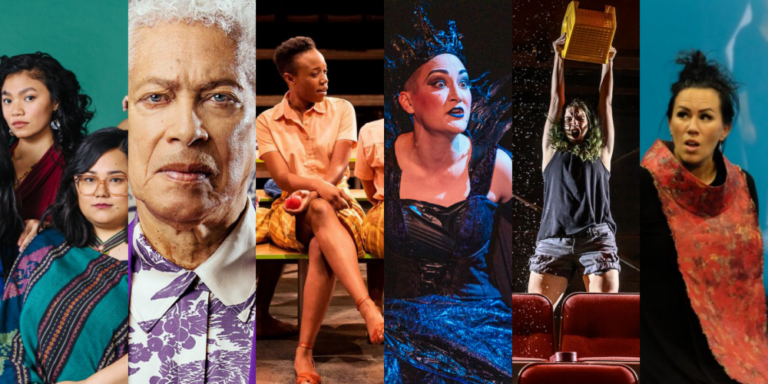
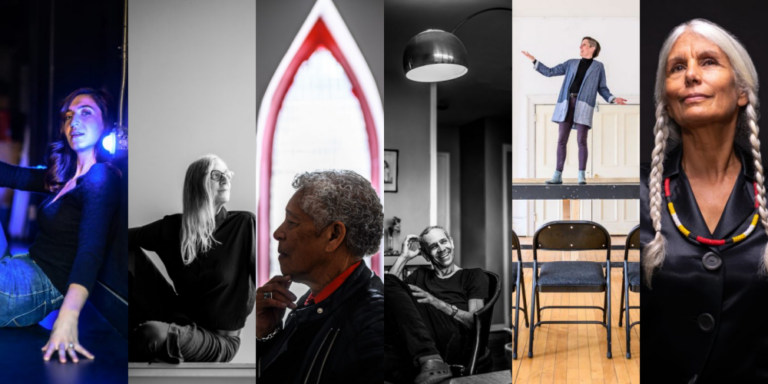
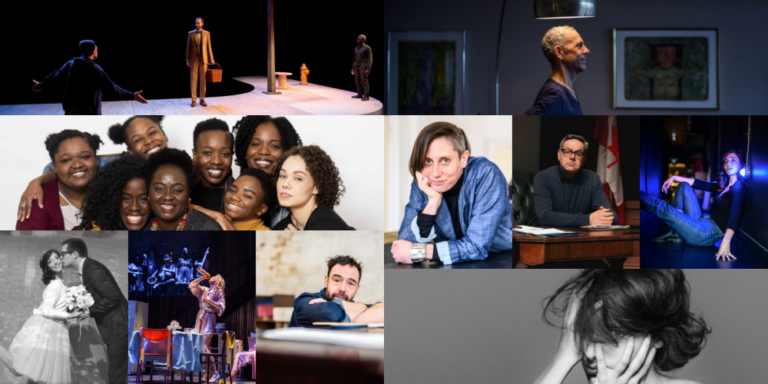
Comments